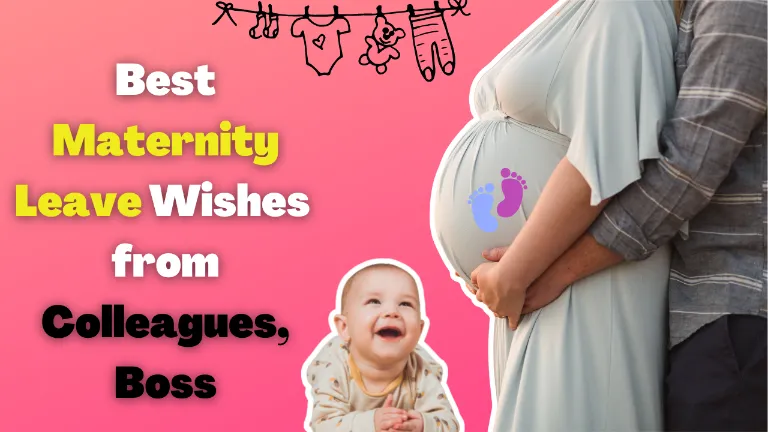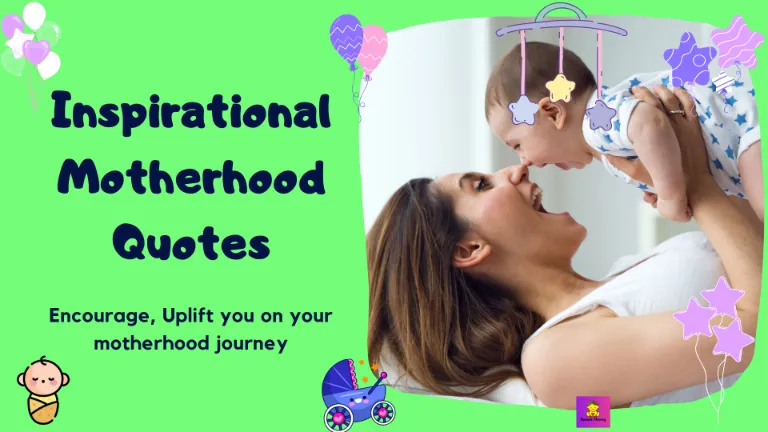20 Questions of Parental Leave: you must know
In this article, we’ll discuss what parental leave is, how it works, parental leave laws and how to request leave from your employer.
Parental Leave Frequently Asked Questions
A benefit that many federal employees provide to their employees is parental leave. A parental leave policy may provide for time off for an employee to care for a new baby, an adopted kid, a foster child, or another youngster who need parental care. Parental leave is different from pregnancy-related medical leave since it is often intended to be offered regardless of medical need.
Also Read Maternity leave and Working Mom Realted Posts.
- 6 Tips for Moms Returning To Work After Parental Leave
- 15 Best family-friendly job for Working Moms
- What is Maternity Leave? (With Types of Parental Leave)
- 20 Questions of Parental Leave: you must know
- 50 Best Motivational: Tired, Strong Working Mom Quotes
Here are our other Working Mom Quotes

What type of leave is parental?
The term “parental leave” may include maternity, paternity, and adoption leave; or may be used distinctively from “maternity leave” and “paternity leave” to describe separate family leave available to either parent to care for small children.
What is the difference between maternity leave and parental leave?
Parental Leave, also known as Paid Parental Leave, provides for 6 weeks of paid leave for eligible employees. Birth mothers, fathers or other partners of birth mothers, adoptive parents and foster parents may be eligible for Parental Leave.
In the case of birth mothers, these 6 weeks can be supplemented by using CAR days from the day of birth until the CAR days run out, or 6 weeks worth of CAR days have been used (8 weeks in the case of a C-Section). So, if a birth mother has the days in her bank, she would get 12 weeks (14 in the case of a C-Section) of paid leave.
People cannot borrow days or use a Grace Period when taking Parental Leave. People who take Parental Leave commit to returning to the DOE for a minimum of one year following the leave.
Maternity Leave is simply a birth mother’s right to use CAR days following a birth for 6 weeks (8 in the case of a C-Section).
There is not additional right to paid leave. Birth mothers who take Maternity Leave are allowed to borrow days and use a Grace Period within the 6 or 8 weeks window, There is no return-to-service requirement under Maternity Leave, though if a person borrows days, she has to either return to service or repay those days to avoid being billed for them.

Do you get paid for parental leave?
Parental leave is usually unpaid – check your contract. Reasons you might take parental leave to be with your child could be to: spend more time with them. look after them during school holidays.
Why parental leave is important?
“Paid parental leave can reduce financial stress, allow parents to focus on bonding with their child, and increase gender equality when fathers have more time to participate in child care duties,”.
said psychologist Ashley Schappell D’Inverno, PhD, a behavioral scientist in the Division of Violence Prevention at the Centers for Disease Control and Prevention.
“All of these positive effects trickle down to benefit the child and the family as a whole.”

How does parental leave work?
Since there is no standard mandatory paid parental leave provision in American law, the primary terms—such as the precise amount of time off work and the employee’s pay during that time—are negotiated directly between the company and the employee.
Creating and extending parental leave by merging existing benefits, such vacation days, sick days, personal days, short-term disability, and unpaid family leave, is a typical compromise. Some employers permit their staff members to use any unused sick or vacation time to prolong their parental leave.
The first step in organising your parental leave is having a conversation with the firm’s human resources department because there are significant variations from one company to another due to the lack of state legislation. This will disclose all corporate policies pertaining to this.
Is it worth going back to work after baby?
Fortunately, research suggests that children don’t experience any harm when their moms work outside the home. The decision to stay at home or return to work is very personal, and there is no one “right” decision for everyone. Keep in mind that a happy mommy will mean a happier baby!. Read more about mom work outside the home.
What happens if I don’t return to work after maternity leave?
Remember, if you don’t return to work you are still entitled to receive money for any holiday that you have remaining, including the time whilst you were on maternity leave. If you decide that you are not going to return to work during your maternity leave, you will still be entitled to receive statutory maternity pay

At what age should I go back to work after baby?
It’s often a matter of your personal circumstances and choice, whether you’re looking for an excuse not to return to work or you really need that paycheck again. But experts recommend waiting until your baby is, at a minimum, 8 weeks old.
When should I start my leave?
Employees are allowed to take time off work at any time within a 12-month period in accordance with the Family and Medical Leave Act. The optimal time to begin your parental leave is often determined by your health, economics, and other personal considerations.
What happens if I hand my notice in while on maternity leave?
If you want to resign from your job when you are pregnant you should hand in your notice in the normal way, giving the notice period required by your employer. Your job will end at the end of your notice period and you are entitled to continue to receive your normal pay and benefits during the notice period.

What if I am adopting a child?
Similar leave possibilities are provided by certain companies to adoptive parents. Companies that typically cover parental leave through short-term health coverage won’t be able to do so, though, as adoption of a kid is not considered a medical short-term disability, unlike childbirth.
Will I have the same job upon returning from parental leave?
According to the Family and Medical Leave Act, your company is required to put you back in your former job. If for whatever reason your employment has been removed, your employer is required to offer you a position with comparable duties, compensation, and benefits.
Do I pay taxes on my paid family leave benefits?
Yes. The employer-funded family leave benefits are taxed in the same way as your normal salary. Whether or whether your parental leave-related disability benefits are taxed depends on who has been paying the insurance costs. For instance, it would constitute a taxable benefit if the employer had been paying them. The short-term disability benefits are tax-free if you have been paying them yourself.

What are parental leave laws?
This federal law requires employers to offer employees up to 12 weeks of unpaid leave per year, for parental leave and other medical purposes. With some exceptions, such as joint employers, the Family and Medical Leave Act applies to employees who meet four conditions:
Their employer is covered
They’ve worked for 1,250 or more hours in the 12 months prior to the parental leave
They work at a location with at least 50 employees (including those who work within 75 miles of it)
They have worked for the employer for at least 12 months
State family leave programs
Some states have specific laws regulating parental leave. Per the National Conference of State Legislatures, 10 states, plus the District of Columbia, have paid family and medical leave programs in place: California, Colorado, Connecticut, Massachusetts, Maryland, New Jersey, New York, Oregon, Rhode Island, and Washington.
Each state has specific regulations regarding the contributions that each employer must make to the family leave programs, as well as employee requirements, such as working a specific number of hours before taking the paid leave.
Other states allow employees to use laws regarding state-mandated paid sick leave for maternity purposes.
Pregnancy Discrimination Act of 1978
This federal law is aimed at protecting the rights of pregnant employees, stating that the employer cannot discriminate in any shape or form against their employee on grounds regarding pregnancy, childbirth or medical conditions that derive from pregnancy. The exact guidelines state that:
The employer must not refuse to hire pregnant candidates or those who recently gave birth
The employer must allow pregnant employees to continue work for as long as they are able
The employee’s position must be kept open while they are on leave
Any upcoming promotion must be upheld
The employee must not be prohibited from returning to work after pregnancy
When and how to request parental leave
It is up to the expecting parent to decide when to share their news with others and submit a leave request, but the legislation specifies that parental leave requests must be made at least 30 days in advance.
You must choose the duration of your parental leave after telling your company the good news about your family in person. The supervisor should receive this information in the form of a formal letter known as a parental leave request letter.
Your direct supervisor and any other departments that may be involved, such as human resources, have been given a copy of this letter. It should be signed and dated even though it’s not a legally necessary document so you have documentation of the company’s communication.
When creating a strategy for the duration of the vacation, communication is crucial.
All duties ought to be manageable with the aid of other required departments. You should also go through how you plan to return to work following your parental leave.






